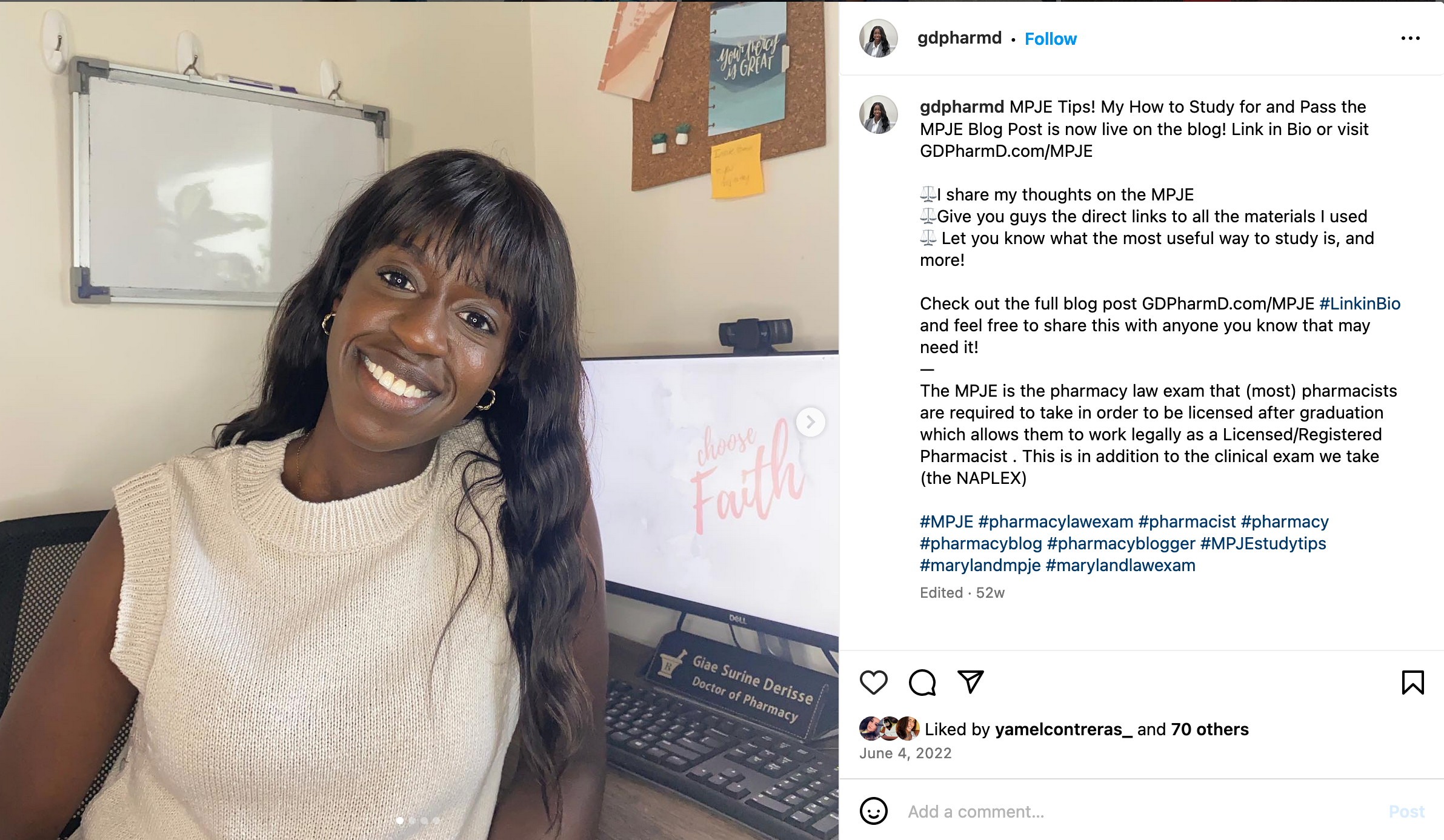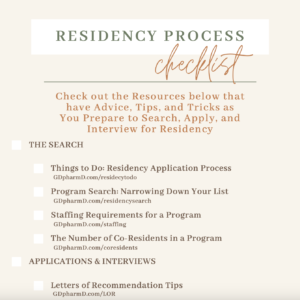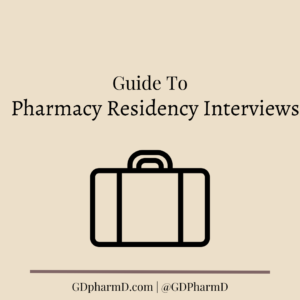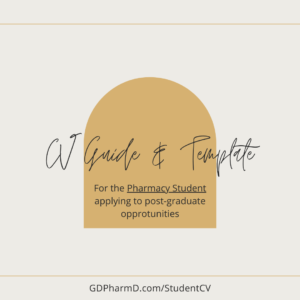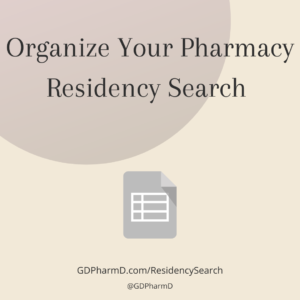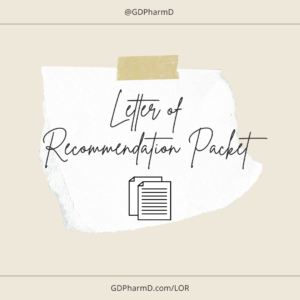Heyyy! I wanted to write this blog post for anyone taking the MPJE! I know it can be pretty stressful so I give you all the insight and resources I used to help ease some of the pressure off!
If you didn’t know, in order to be a registered pharmacist, there are two exams you will need to take, a clinical exam and a law exam. The clinical exam is the North American Pharmacist Licensure Examination [NAPLEX] and the law exam is the Multistate Pharmacy Jurisprudence Examination [MPJE]. Some states may not require the MPJE or have an alternative like California’s California Practice Standards and Jurisprudence Examination [CPJE].
In my opinion, the MPJE is intimidating because we spend 4 years preparing for the NAPLEX but only one semester (and only 1 course in a semester, most likely) preparing for the law exam. After all, we didn’t sign up to go to law school (LOL!). So I wanted to make this blog post for anyone preparing.
Here are a few caveats to keep in mind:
- Each state has a different MPJE exam (because each state has different laws)
- I went to school in New Jersey but took the MPJE for Maryland
- I took the MPJE in 2020
Some people say the law exam is harder than NAPLEX, I would disagree. The laws are the laws, so it doesn’t change based on patient-specific factors like the NAPLEX/clinical exam. I think it’s just that we don’t have as much exposure to law & because the information you need to know isn’t wrapped up in one book like Rxprep.
With all that being said, read this blog carefully to get all the tips on how to pass the MPJE exam! I hope it’s helpful for you 🙂
WHEN TO TAKE THE EXAM
I graduated during the height of the pandemic in 2020 or else I would have taken both by NAPLEX and MPJE before residency (there were reduced capacity testing sites so appointments were hard to come by). I took my NAPLEX first and then my MPJE. As a timeline, I took my NAPLEX June 18th, started residency June 22nd, and took my MPJE July 20th.
I would advise anyone that is going into the workforce after graduation to take the licensing exams (NAPLEX and MPJE) prior to starting your residency, job…etc. If it would be impossible for you to do so, definitely try to take it before orientation is over. If you are doing a residency after graduation as I did, something to keep in mind is that ASHP has rules regarding when you should be licensed. ASHP’s policy (at the time of writing this) is that residents need to be licensed within 90 days of their start date. Regardless, try to get licensed even before residency starts (you’ll thank me later!). Also, it provides a good buffer because if worst comes to worst and you do not pass on your first try, you have enough time to re-schedule and try again (There is a 30-day waiting period after a failed attempt to take the MPJE).
Moral of the story: Get your ATT number ASAP and schedule your exams – if you want to get licensed in multiple states, prioritize the state where your job/residency is.
HOW LONG TO STUDY FOR THE EXAM
This is a complicated answer because in-part I was simultaneously studying for the NAPLEX. I started studying for the NAPLEX end of March/early April and focused mainly on that. Around late May I simultaneously started studying for the MPJE for about 2-3 hours about 3-4 times a week. Keep in mind this was while I was simultaneously packing and moving to a new state. When I was done with the NAPLEX, I studied for about 4 solid hours during the week (I was in orientation at the hospital), and then on the weekends, it was 6+ hours.
When asking people how long they studied for an exam they may give you something like 1 month or 2 months or even 2 weeks, but what’s MORE important is to find out how much time per day they had to dedicate to studying during that time. Were they studying full-time (8+ hours a day) or 2-3 hours per day? Two weeks of studying for someone who graduated and isn’t working a job and is able to study full-time (8+ hours a day 5-7 days a week) is way different than someone studying for two months, who is also working full-time and is only able to squeeze in 2-3 hours per day.
I think 3-4 weeks full-time is reasonable for the MPJE. If you aren’t able to study full-time, then extend your study plan accordingly.
I will also say how long you may need to study may also depend on how accessible the materials are. Some states have everything wrapped up neatly in one book to study. In other states, you have to look in so many different places to find the laws (more on this below).
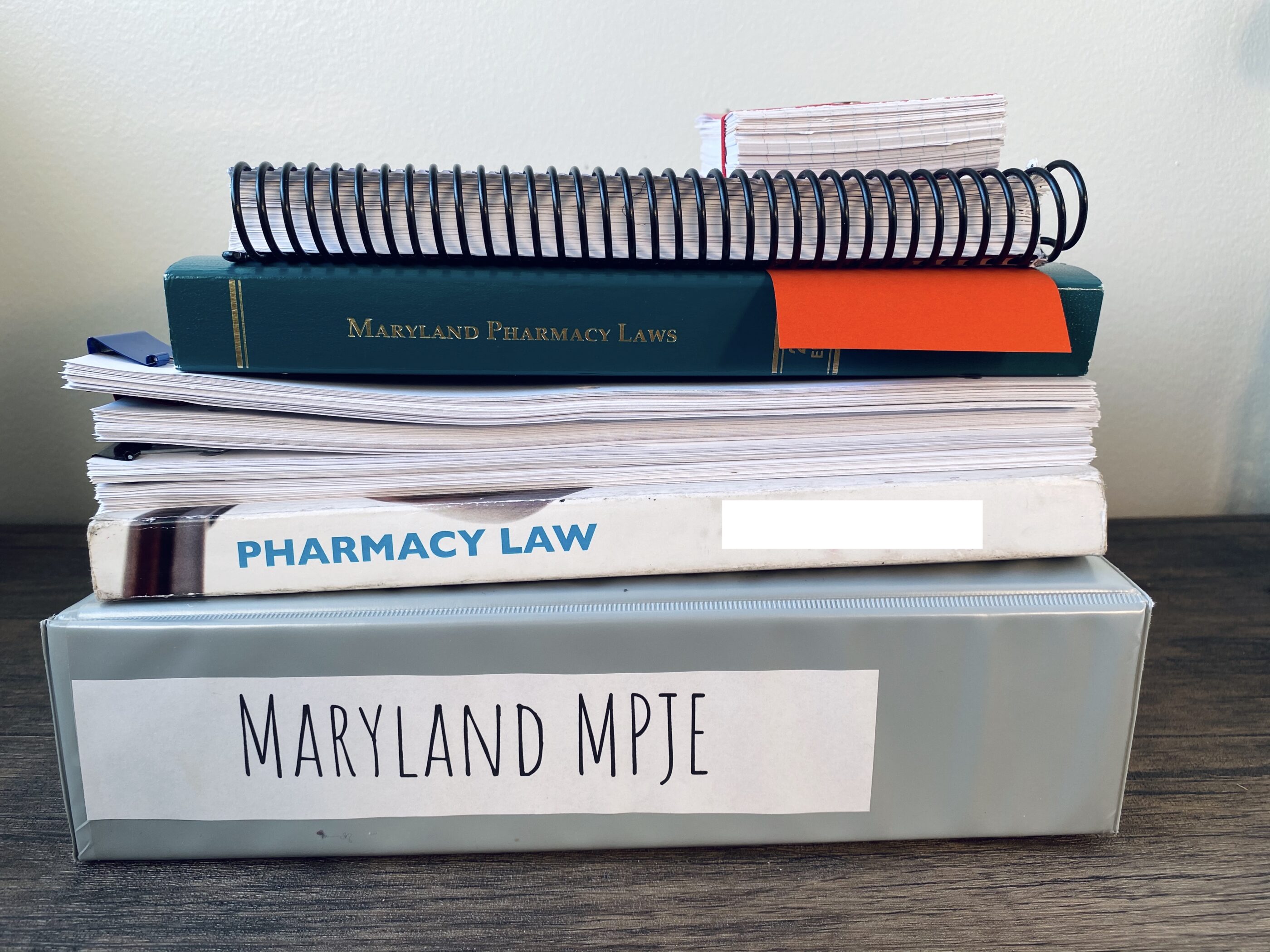
WHAT MATERIALS TO USE + HOW TO FIND THEM
First (and most important) is to gather ALL the materials you need to study. The MPJE is comprised of state-specific laws as well as federal laws. Making sure you have all the materials you need will be a key to success.
I would recommend talking with several people like the current residents, future co-residents (especially if you’re out of state and they stayed in the same state of their pharmacy school), future coworkers, boss/RPD, etc about what they used to study. Also, make sure those people took it relatively recently so that you don’t get outdated information/materials. Asking other people will save you time and money which is a plus because they may be able to send you over materials (don’t be shy to ask!). Also, browse your board of pharmacy website, they may have materials for purchase.
I will say, some states have better preparation materials for pharmacists than others. For Maryland, I felt like I needed to go to a ton of different places for the study materials and regulations whereas other states have a nice book of laws specifically for pharmacists. So, depending on where you’re getting licensed, it could differ in how much effort will need to go into getting all those materials.
Also, see if the local/state pharmacy school has an MPJE class or review lecture that is available for you! My residency program paid for a review class for us that was hosted by the University of Maryland Pharmacy School (more on this later) which saved my life. My pharmacy school (Rutgers in New Jersey) had a review class that was open to residents across the state to attend. So definitely see if something like that is available and act early as these classes will probably be sometime in May/June.
I used a mix of books and online databases of laws/regulations.
Below, I list out ALL the things I used. You will see one set of materials that are applicable to every state and another set that are Maryland-specific materials (if you’re testing in Maryland, use both sets of materials)
Materials I used that are applicable to every state:
- Federal law review book
This one may be outdated in some parts, but in general, most federal laws take a while to change (if they are changed at all). If there’s an updated version, use the most up-to-date. This book also has practice questions which is a huge help when studying.
Guide to Federal Pharmacy Law, 9th Edition by Barry S. Reiss & Gary D. Hall
- ISBN 10 9780967633282
- ISBN 13: 978-0967633282
- DEA Pharmacists Manual

DEA Pharmacists Manual Link (update: at the time of writing this, the 2022 version is the most up-to-date) but be sure to check if it is the most updated one at the time you’re preparing for the exam. PDF Direct Link (2022 version).
- A few words about this, you need to know the controlled substances laws like you know your name. Meaning, know it VERY VERY well. This manual is for federal law, but you need to keep in mind that your state will also have specific laws and you NEED to know those as well.
- Also, know which meds are scheduled into what CSD class. Keep in mind, some states may classify a certain drug into a different CSD than it is federally (confusing, I know).
- The NABP MPJE webpage and MPJE Competency Statements

- The NABP webpage will answer all of your questions about the logistics of the exam, how many questions, how long the exam is, exam results, things you need on test day…etc. They even have sample questions so you can get a sense of the exam format.
- The Competency statements is a great document to review to know exactly what the exam tests you on. Read through it thoroughly, it’ll let you know topics you’ll be tested on like USP 800…etc
- Pharmacyexam.com

- One of my top tips is to get your hands on as many practice questions as possible. This is a website that has question banks for state and federal law questions and was KEY in helping me pass. When doing practice questions from this site or from anywhere, don’t monotonously go through the questions, but STUDY the questions: why the answer you chose is correct, why the other answers are false, and the explanations. If possible, go back to your study materials and read up on where those questions derived from.
- The pharmacyexam.com website has both federal and state practice questions. I used the following three practice exams:
- Federal Pharmacy Law Test-1
- Federal Pharmacy Law Test-2
- Maryland Pharmacy Law Test
- This resource is pricey, especially as a student, but if you’re able to make it work, it’s a good investment and has so many practice questions that I KNOW for a fact helped me pass.
5. DEA’s Mid-Level Practitioners Authorization by State
- This document (update: at the time of writing this, the 12/2022 version is the most up-to-date) is a good one to know which practitioners can order what kind of controlled substances. This is a must-know and the document clearly lays out Mid-Level Practitioners by State and the licensing authority granted to each category within that particular State through the Drug Enforcement Administration (DEA).
- Again, please make sure this is the most up-to-date version when preparing for this exam
6. My own summaries and tables
- You will encounter A LOT of numbers such as years until license renewal, the number of CE credits, the number of people on the board of pharmacy, fees…etc. You should know these. When you start studying, create a document and as you go along in your studies, fill in the document with those numbers so you have them condensed in one place. Below is an example (this may not be the most accurate, it’s just used as an example)
Materials I used that are likely only applicable to Maryland
1 University of Maryland Pharmacy School’s Law exam review course
- This is a really helpful course offered by the University of Maryland Pharmacy School
- This does cost money, but fortunately, my residency program covered the cost.
- It was a two-day intensive with live lectures, a review of a summary packet, a practice exam, and materials/regulations to review. It was so useful and between this and pharmacyexam.com I would not have passed the MPJE!
- If you miss the live class, there is an option to purchase the materials as well, so check it out!
- If you aren’t taking an exam for Maryland, see if there is an option like this in your state.
2. State of Maryland-specific Materials/Laws/Regulations via the UM Library site
- This is a website via U Maryland’s Library that provides easy access to the resources below (COMAR, HG, HO), USP 797 + 795 + 800, and more!
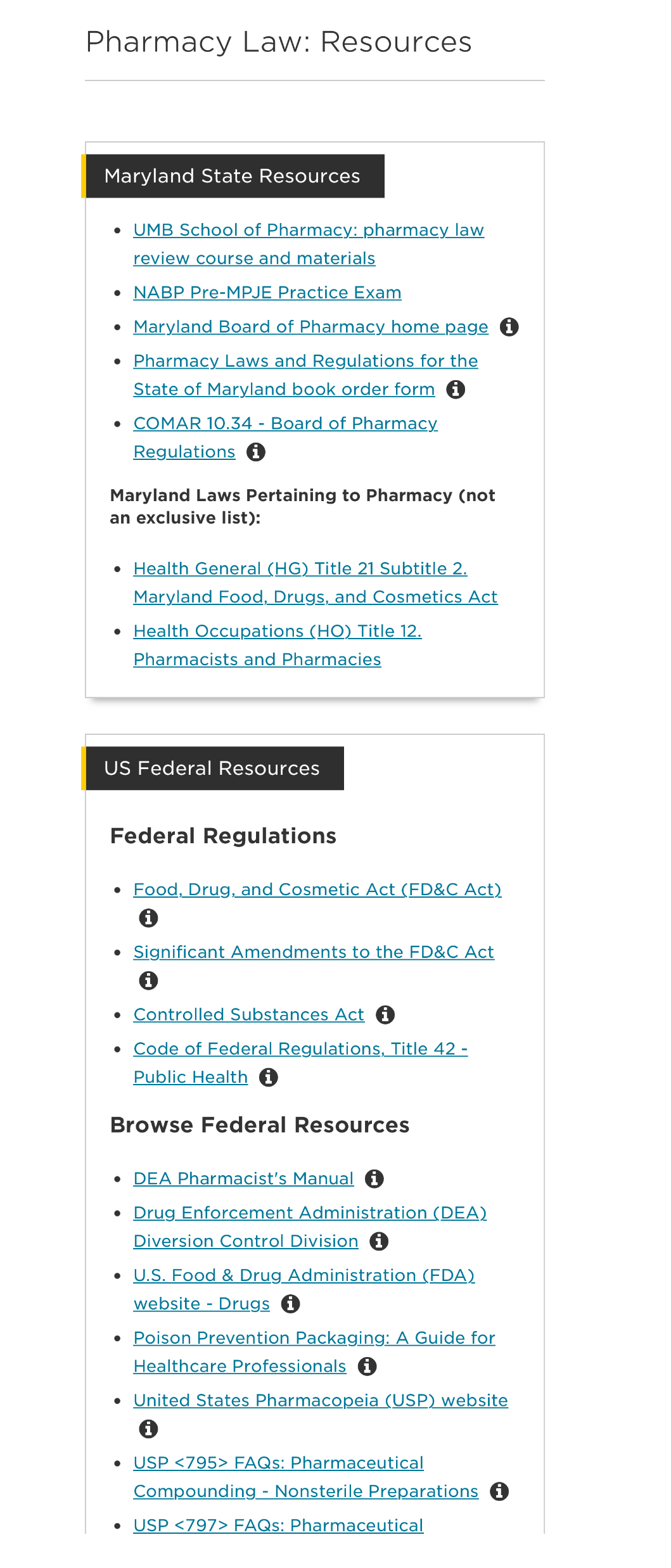
3. COMAR
COMAR is The Code of Maryland Regulations (COMAR) and includes MARYLAND pharmacy-specific regulations. The main COMAR regulations are below but keep in mind this IS NOT an all-inclusive list.
– COMAR 34 pertains to the board of pharmacy: 10.34.01 through 10.34.40
– COMAR 13 pertains to drugs: 10.13.01 through 10.13.12
– COMAR 19 pertains to dangerous devices and substances: 10.19
4. Health General (HG) and Health Occupations (HO) laws
These can be found using this site, it’s pretty easy to navigate, just find the specific section by scrolling down and expanding the appropriate boxes. The main ones HG and HO laws are below but keep in mind this IS NOT an all-inclusive list.
– Health General (HG) Title 21 Subtitle 2. Maryland Food, Drugs, and Cosmetics Act
– Health General (HG) Title 21 Subtitle 2A. Prescription Drug Monitoring Plan
– Health Occupations (HO) Title 12. Pharmacists and Pharmacies
Once on the website, Scroll down to the titles shown in the photo above and hit the ‘+’ sign to expand
MATERIALS I DID NOT USE
I DID NOT take the pre-MPJE that is offered by NABP. I simply did not have enough time and was fed up with spending so much money during P4 year. Between the federal law book, the University of Maryland law review course, and pharmacyexam.com, I had plenty of practice questions. It is a personal decision though if you want to take it.
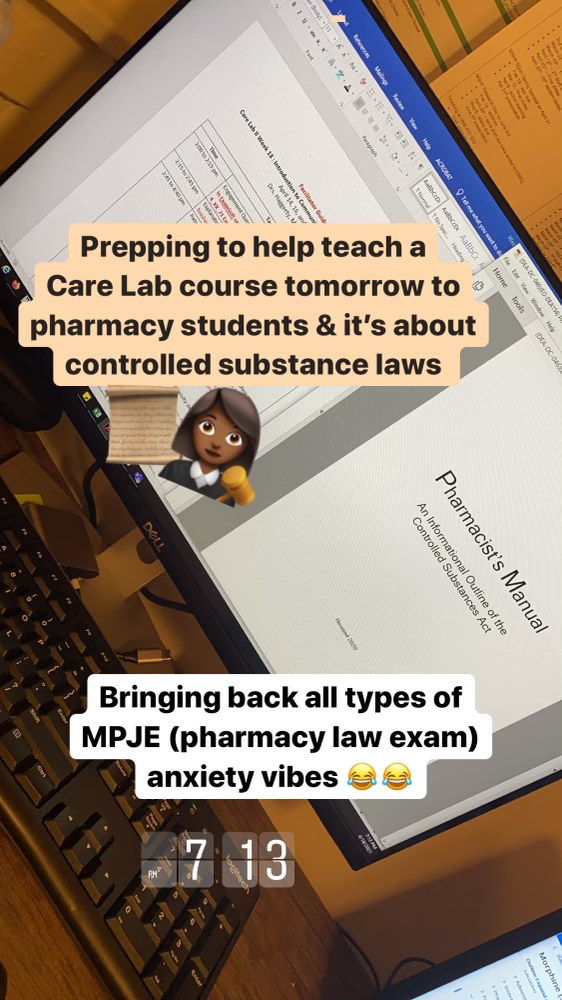
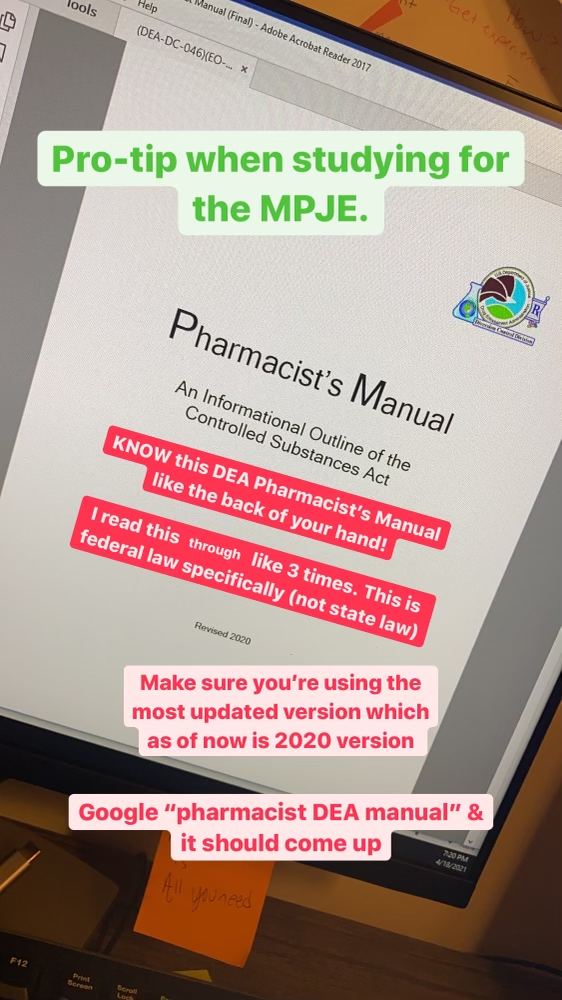
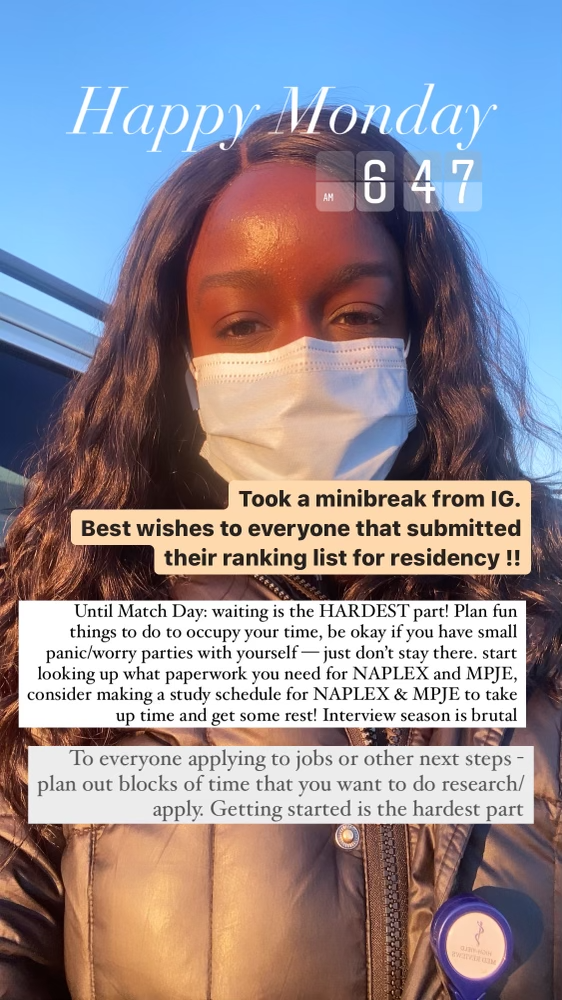
Follow me on Instagram for tips and to follow along on my journey!
HOW I STUDIED
- I made sure I had all the materials I needed (I printed some, and read from my computer for others) ready and organized
- Have a plan/study schedule of when you will study. Write out a list of everything you need to read/study and the practice questions and plug it into a calendar to make a schedule. Also, keep in mind how long you have for each study session, and be specific about what you will do on each day of studying. Leave room for catching up and reviewing because things don’t always go according to plan!
- Repetition, repetition, repetition! You will need to read through things multiple times to have it sink in especially since this law lingo is new.
- Read through all the materials 2-3 times each to memorize/understand everything.
- EVERYTHING is fair game, study accordingly
- I won’t necessarily point out things to focus on, because the questions come from everywhere honestly. Yes, you should definitely know Controlled substance laws very well, but it isn’t the only part of the exam.
- I did as many practice questions as I could get my hands on. Also, compile a document of the questions/concepts you repeatedly get wrong so you can revisit them at the end of your study session for more repetition.
- Be able to recite/write down as many things from memory. For example, what goes on a prescription label (required vs optional) versus what is required for a manufacturer’s bottle. It may seem easy to remember, but when all the answer choices on the exam seem like they could be right…It is a different story, so memorization is needed.
- Don’t confuse what YOUR pharmacy does with what the actual law is. Some pharmacies have policies that are more stringent, but it does not mean that is the law. Keep that in mind.

TIPS FOR EXAM DAY
- Read the questions VERY well and answer the question being asked
- Don’t make any assumptions. All that is given in the question is all you should base your answer on.
- Keep in mind federal vs. state/local laws, per NABP “No distinction is made in the examination between federal and state jurisprudence questions. You are required to answer each question in terms of the prevailing laws of the state in which you are seeking licensure.”
- Don’t skip questions, you cannot go back
- When I took the MPJE, they said that it was smart to answer all the questions. If you answered >107 but <120, there was some sort of penalty. Check the NABP website for more information.
- Make sure you watch the time/pace yourself when you’re taking the exam to make sure you don’t run out of time! Use those practice exams when you’re studying to time yourself.
- Leaving the exam you may not feel the most confident but don’t be too hard on yourself. I honestly thought I failed when I left that exam room, but I passed on the first attempt, thank goodness!
Hope that was helpful! If you have any questions, feel free to let me know!
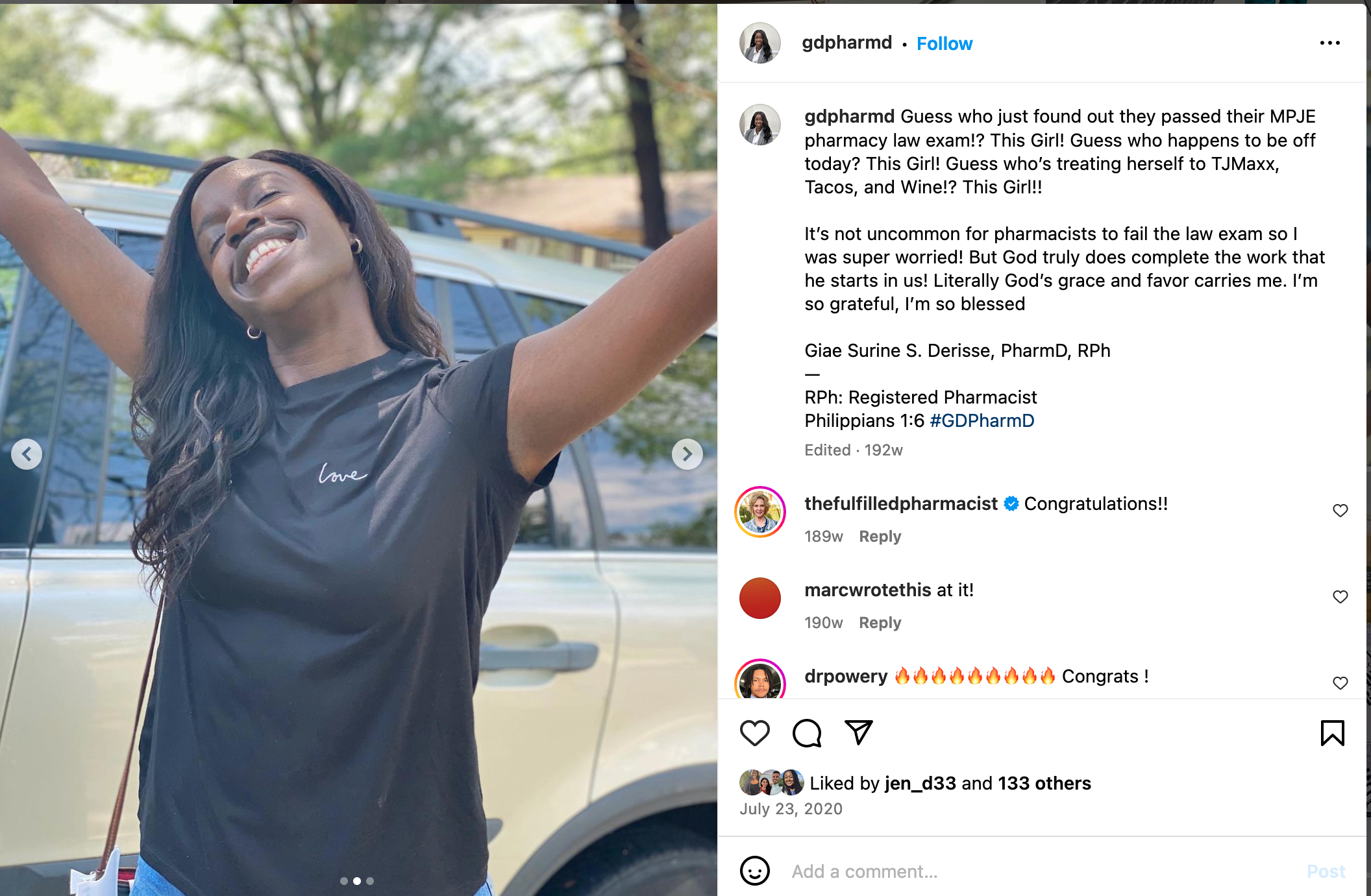
Check out the “Rx Exams” Instagram highlight here for any extra tips and FAQs about pharmacy exams:

Practical Things I Used During Residency!
Top Pharmacy Apps You Should Try
Getting Ready for Residency Part I: What to Do Before Starting
Getting Ready for Residency Part II: Orientation Month

